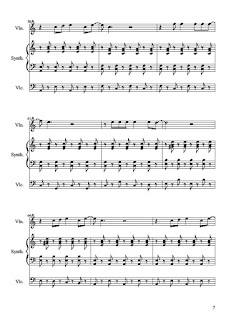Sonntag, 7. Juni 2015
Bersuit Vergarabat - La Bolsa
para darse cuenta, te digo, no hay que ser muy pillo: Bersuit Vergarabat always has been and will continue to be one of my top five favourite rock bands. It is their strong lyrics writing, their members’ level of musicianship which allows them to transit effortlessly between the musical idioms of all manner of musical styles, and this incredible fusion of musical styles itself, to name only a few of the things that I admire about them, which are at the root of my ongoing fascination with this band.
Bersuit Vergarabat are so far the only band that I was eager enough to see live to actually travel to another country (Madrid, 2008) for a chance to see them. But the story started much earlier.
I first heard a Bersuit song when my older brother returned from an exchange year to Argentina in 2001 and brought back a CD with songs by various artists that were popular in Argentina at that time. Next to Los Abuelos de la Nada, Ráfaga, Walter Olmos and others it also contained the song La Bolsa by ersuit; we all listened to the CD for the whole summer vacation and La Bolsa soon became a favourite.
When I went to Paraguay in 2003 “De La Cabeza” was one of the first albums I bought, right at the beginning during a half-day stopover in Buenos Aires, and from there things took its natural course… Amazed by their range of styles, by the diverseness that is undoubtedly the result of having a band with eight members all of whom take part in the songwriting process and make their own contributions to it, and especially by the many traditional rhythms they incorporate in their music and which were unlike anything I’d ever heard before, I became a Bersuitero, soon bought all of their albums, including the first three which I only managed to find on a trip to Argentina, and I was a first-hand witness to the publication of “La Argentinidad al Palo” (about which I even wrote an essay at university which I hope to share at some later point). Finally a band which was at their peak just as I started liking it!
To this day I consider the album “Hijos del Culo” as Bersuit’s finest work and this song continues to hold a special place; therefore when I suggested this as one of the songs to play in our little concert for my mother’s 60th birthday, the response from my siblings was unanimous.
In arranging the song for the instruments we had – keyboards, drums, violin, violoncello and guitar – I was faced with several challenges. A true bass instrument was lacking, the rhythm section was thin, the violin part would have to be newly created, and a solution would have to be found for the second voice and the second guitar.
Finally, in my arrangement the violin plays the second voice wherever it appears; where there is none the violin plays some of the licks played by the second guitar, and during the intro, solo etc. it doubles the melody of the accordion (the part of which has been played on a keyboard, as Bersuit themselves do in live recitals). Accordingly, the guitar plays the offbeat chord pattern during the parts where the violin is playing the licks in the second guitar; when the violin plays the second voice, however, the guitar plays these licks, since the offbeat chord pattern (in typical cuarteto style) is also present in the keyboard accompaniment.
What observations can be made after understanding the musical skeleton of La Bolsa? It is a cuarteto piece with a distinct rock feel. As in a lot of the best songs, the backbone of the song is simple – a four chord progression (Am – F – C – E) which is repeated throughout the piece, albeit with constant variations. There are a lot of really nice harmonies between the two voices, and great solos by the accordion and the guitar at the end. The main melody from the intro is the greatest recognition factor however.
There is not much to be said about the lyrics – I am by now convinced that they are about a tour Bersuit did with “La Mona Jiménez” and one of the members of that band stealing Bersuit’s cocaine bag – we’ve all been there. I love how the lyrics periodically stray from this topic with sentences that are not easily understandable in the context of this interpretation, but which create a colloquial register causing an eagerness in the listener to understand what the story that is obviously being told, is about. Fuertes aplausos!















Keine Kommentare:
Kommentar veröffentlichen